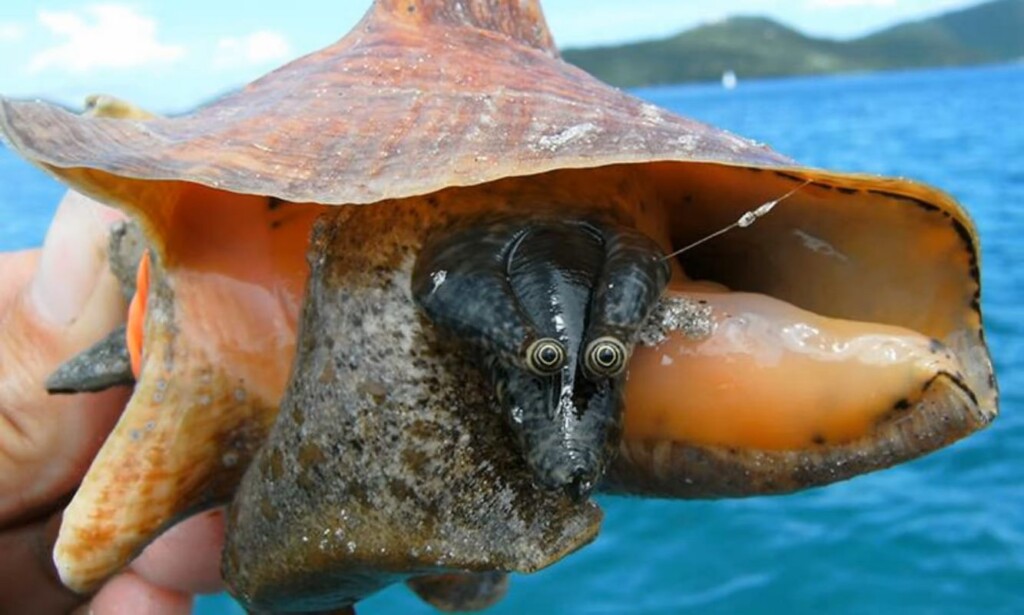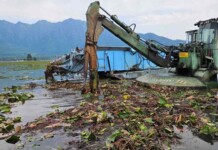
This incredible critter is the queen conch, and look out fellas she’s single.
She’s one of many queen conch bachelorettes being saved by a new initiative in Florida that’s relocating these endangered mollusks to deeper waters.
Warming seas off the Florida Keys have made this species lethargic and survival-focused, impeding their reproductive activities. Marine biologists hope that in the cooler, deeper waters, they will pair up and mate without issue.
The small but dedicated team of mollusk matchmakers at the Florida Fish and Wildlife Conservation Commission (FWC) have moved over 200 individuals of this species of near-shore conch to an offshore reef in the Upper Keys from waters around the city of Marathon.
The Gulf of Mexico is a tumultuous environment for native sea life, with oil spills, hurricanes, and some of the fastest-warming water temperatures on the planet.
“It’s because we’re dealing with very shallow water, too cold in the winter, OK in the spring, and in the summer it gets too hot,” Gabriel Delgado, a research scientist and conch specialist with the FWC who played chief matchmaker during the relocation project, told the Guardian.
“The animals shut down. Instead of going into reproduction, they shunt their energy into basically survival and never really develop their reproductive organs very well.”
OTHER GOOD GULF NEWS: Number of Fish on US Overfishing List Reaches All-Time Low–Led by Mackerel and Snapper
In a successful example of crowdsourcing, the FWC asked the public to help locate queen conchs near the shore that could be relocated.
“We asked the public to keep their eyes open. They reported them online, some people emailed, and we used community volunteers to gather up the 208 that we moved in June to an offshore aggregation,” said Delgado.
OTHER GOOD GULF NEWS: Watch 2,200 Cold-Stunned Turtles Being Released by Volunteers Back Into the Gulf
It’s been more than a year since the relocation happened, and while breeding activity hasn’t been recorded yet, the most recent dive to check up on the loveshells found them all still mingling in the reintroduction zone.
SHARE This Hardwork On Behalf Of A Special Species With Your Friends…




















